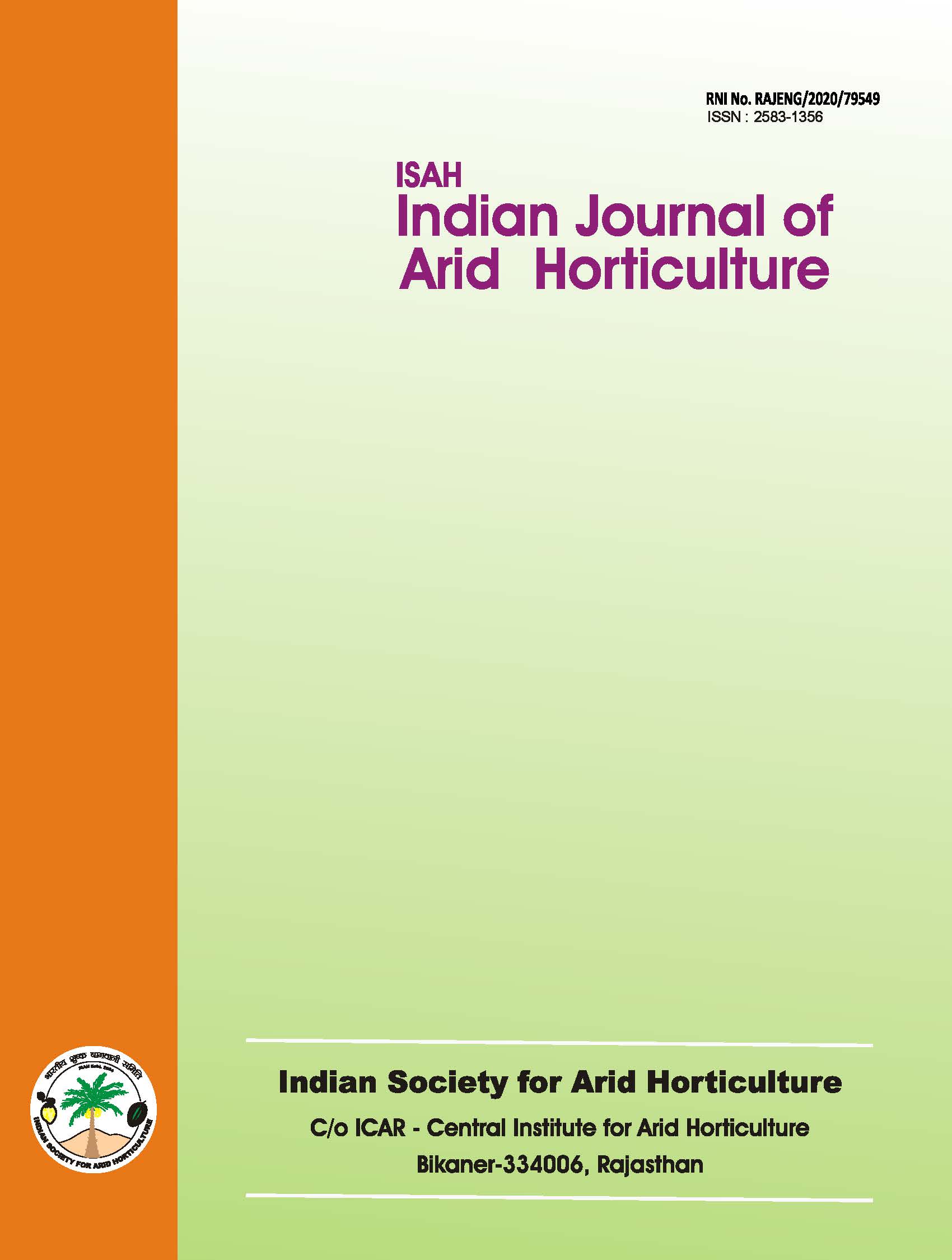Effect of drip irrigation and bioregulators on water use efficiency and fruit yield of round gourd Praecitrullus fistulosus)
Keywords:
Bioregulators- thiourea, N-acetyl cysteine, TGA, drip irrigation level, round gourd, fruit yield, water use efficiencyAbstract
A field experiment was conducted during 2011 and 2012 at Niche Area Excellence Farm, Bikaner to study the effect of drip irrigation and bio-regulators on water use efficiency and fruit yield of round gourd (Praecitrullus fistulosus). The treatments consisted of three drip irrigation schedules: 60%, 80%, and 100% ETc, and four levels of bioregulators: control (water spray), thiourea (500 ppm), N-acetyl cysteine (20 ppm), and TGA (100 ppm), applied as foliar sprays twice at the vegetative and flowering stages. An absolute control was also included, where the crop was grown with surface irrigation using the recommended package of practices. The experiment was conducted in a randomized block design and replicated thrice. Results indicated that fruit yield increased with higher irrigation levels, with the highest yield of 328.8 q/ha recorded at 100% ETc. The study further revealed that the number of fruits per plant increased with increasing irrigation levels up to 100% ETc. Among the bioregulators, N-acetyl cysteine at 20 ppm resulted in the highest fruit yield (319.5 q/ha) compared to thiourea (500 ppm) and TGA (100 ppm), which yielded 314.5 and 319.5 q/ha, respectively. Additionally, the study indicated that the number of fruits per plant, fruit weight, and water use efficiency (WUE) were higher with bioregulator sprays compared to the water spray control.
Downloads
References
Devaranavadgi, V. S., Shirahatti, S. S., and Patil, M. G. 2011. Effect of different levels of drip irrigation on growth and yield of bitter gourd (Momordica charantia L.) in semi-arid conditions of Karnataka. International Journal of Agricultural Engineering, 4(2): 179-182.
Mani, F., Bettaieb, T., Zheni, K., Doudech, N., and Hannachi, C. 2013. Effect of thiourea on yield and quality of potato (Solanum tuberosum L.). Journal of Stress Physiology & Biochemistry, 9(1): 87-95.

